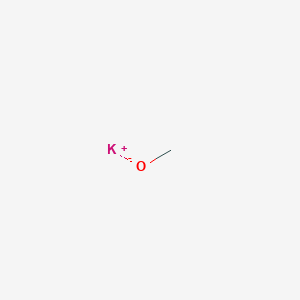[China Pharmaceutical Network Technology News] It is reported that researchers at the Massachusetts Institute of Technology and other research institutions have constructed a freeze-dried particle that, once added to water and frozen DNA, begins to produce this DNA-encoded protein.

In a new study, researchers from the Massachusetts Institute of Technology and other research institutions have constructed tiny freeze-dried pellets containing all the molecular complexes needed to translate DNA into proteins, which may Become the basis for the production of drugs and vaccines on demand. The relevant research results were recently published in the Cell journal entitled "Portable, On-Demand Biomolecular Manufacturing". The first author of the paper is Keith Pardee, assistant professor at the University of Toronto, Canada, Shimyn Slomovic, postdoctoral fellow at the Institute of Medical Engineering and Science at the Massachusetts Institute of Technology, and Jeong Wook Lee, a researcher at the Harvard University Wyss Institute for Biologically Inspired Engineering, and the Wise University Bioinspired Engineering Institute at Harvard University. Technical researcher Peter Nguyen.
These granules contain dozens of enzymes and other molecules extracted from cells and can be stored for a longer period of time at room temperature. Once water and frozen DNA are added, these particles begin to produce this DNA-encoded protein.
James Collins, professor of medical engineering and science at the Department of Bioengineering at the Institute of Medical Engineering and Science at the Massachusetts Institute of Technology, said, "It's a modular system that can be programmed to make what you need on the spot. You might have it." Hundreds of different DNA particles are available for you to add on site."
Collins said particles of a few microns in diameter could easily be carried by soldiers, astronauts or health care workers in remote areas.
Cell-Free Protein Synthesis Collins and many others in the field of synthetic biology have previously designed cells to perform many functions that they would not normally have, such as the production of drugs or biofuels. In the past few years, Collins has demonstrated that this design can also be carried out extracellularly by extracting the necessary cellular components and lyophilizing them on paper or other materials.
"These cell-free extracts are made up of dozens of enzymes, DNA and RNA, as well as ribosomes and other molecular complexes that cause transcription and translation," Collins said.
In this new study, the researchers took the paper away: freeze-drying these cell extracts into particles that remained stable for at least a year. To activate protein production, they add water to rehydrate the particles while adding the lyophilized DNA to encode the desired protein.
This approach may be used to produce a range of products, including drugs and molecules that may be used to diagnose disease. In this new study, researchers produce small molecule proteins that can be used as a diphtheria vaccine, as well as antimicrobial peptides that have the potential to fight bacterial infections.
The researchers also programmed the particles to create an enzyme that forms a multi-step metabolic pathway that synthesizes a complex drug called violacein. Acetobacterin has anticancer activity and antibiotic activity.
For diagnostic applications, the researchers used these particles to produce several different antibodies, including an antibody that detects C. difficile, which causes inflammation in the colon.
Easily storing this method may be more likely to produce biopharmaceuticals than using live cells because these frozen components are easy to store and transport, so they do not need to be refrigerated in the refrigerator.
Michael Jewett, an associate professor of chemical and biological engineering at Northwestern University (not involved in the study), said, "Collins and colleagues have depicted that cryopreserved cell-free biomanufacturing platforms can be used to synthesize therapeutic agents, vaccines, biochemical reagents on demand. There is no need for a future for a cold supply chain. By moving factory production to the front line, we may be able to provide drugs that are not currently available."
PSA 23.06000
LogP 0.04670
Index of Refraction n20/D 1.37
Storage condition Flammables area
Stability Stable. Reacts violently with water. Moisture sensitive. Absorbs carbon dioxide from the air. Incompatible with acids, strong oxidizing agents, acid chlorides, acid anhydrides, alkali metals.

In a new study, researchers from the Massachusetts Institute of Technology and other research institutions have constructed tiny freeze-dried pellets containing all the molecular complexes needed to translate DNA into proteins, which may Become the basis for the production of drugs and vaccines on demand. The relevant research results were recently published in the Cell journal entitled "Portable, On-Demand Biomolecular Manufacturing". The first author of the paper is Keith Pardee, assistant professor at the University of Toronto, Canada, Shimyn Slomovic, postdoctoral fellow at the Institute of Medical Engineering and Science at the Massachusetts Institute of Technology, and Jeong Wook Lee, a researcher at the Harvard University Wyss Institute for Biologically Inspired Engineering, and the Wise University Bioinspired Engineering Institute at Harvard University. Technical researcher Peter Nguyen.
These granules contain dozens of enzymes and other molecules extracted from cells and can be stored for a longer period of time at room temperature. Once water and frozen DNA are added, these particles begin to produce this DNA-encoded protein.
James Collins, professor of medical engineering and science at the Department of Bioengineering at the Institute of Medical Engineering and Science at the Massachusetts Institute of Technology, said, "It's a modular system that can be programmed to make what you need on the spot. You might have it." Hundreds of different DNA particles are available for you to add on site."
Collins said particles of a few microns in diameter could easily be carried by soldiers, astronauts or health care workers in remote areas.
Cell-Free Protein Synthesis Collins and many others in the field of synthetic biology have previously designed cells to perform many functions that they would not normally have, such as the production of drugs or biofuels. In the past few years, Collins has demonstrated that this design can also be carried out extracellularly by extracting the necessary cellular components and lyophilizing them on paper or other materials.
"These cell-free extracts are made up of dozens of enzymes, DNA and RNA, as well as ribosomes and other molecular complexes that cause transcription and translation," Collins said.
In this new study, the researchers took the paper away: freeze-drying these cell extracts into particles that remained stable for at least a year. To activate protein production, they add water to rehydrate the particles while adding the lyophilized DNA to encode the desired protein.
This approach may be used to produce a range of products, including drugs and molecules that may be used to diagnose disease. In this new study, researchers produce small molecule proteins that can be used as a diphtheria vaccine, as well as antimicrobial peptides that have the potential to fight bacterial infections.
The researchers also programmed the particles to create an enzyme that forms a multi-step metabolic pathway that synthesizes a complex drug called violacein. Acetobacterin has anticancer activity and antibiotic activity.
For diagnostic applications, the researchers used these particles to produce several different antibodies, including an antibody that detects C. difficile, which causes inflammation in the colon.
Easily storing this method may be more likely to produce biopharmaceuticals than using live cells because these frozen components are easy to store and transport, so they do not need to be refrigerated in the refrigerator.
Michael Jewett, an associate professor of chemical and biological engineering at Northwestern University (not involved in the study), said, "Collins and colleagues have depicted that cryopreserved cell-free biomanufacturing platforms can be used to synthesize therapeutic agents, vaccines, biochemical reagents on demand. There is no need for a future for a cold supply chain. By moving factory production to the front line, we may be able to provide drugs that are not currently available."
Potassium Methoxide CAS No.865-33-8
Potassium Methoxide Chemical & Physical Properties
Density 0.95 g/mL at 20 °C
Boiling Point 84°C
Melting Point -20°C
Molecular Formula CH3KO
Molecular Weight 70.132
Flash Point 7°C

PSA 23.06000
LogP 0.04670
Index of Refraction n20/D 1.37
Storage condition Flammables area
Stability Stable. Reacts violently with water. Moisture sensitive. Absorbs carbon dioxide from the air. Incompatible with acids, strong oxidizing agents, acid chlorides, acid anhydrides, alkali metals.
Water Solubility may decompose
Potassium Methoxide Application
Used as a condensing agent, a catalyst for producing methyl formate, a strong basic catalyst for dimethylformamide, and also used as a pharmaceutical raw material.
Potassium Methoxide,Potassium Methoxide Solution,Potassium Methoxide In Methanol,Potassium Methoxide Msds
Shandong YingLang Chemical Co.,Ltd , https://www.sdylhgtrade.com